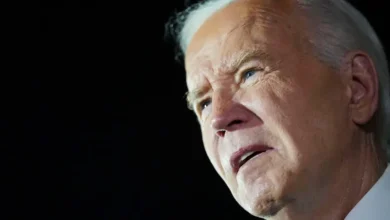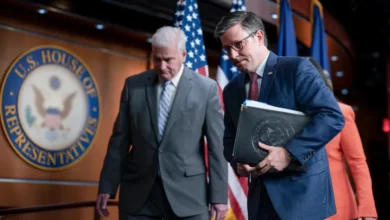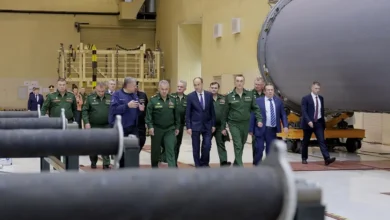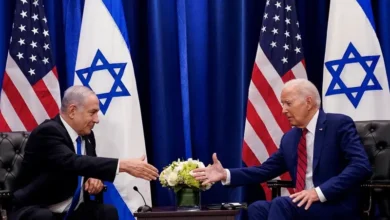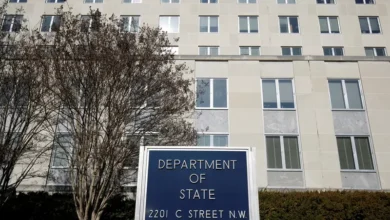US Supreme Court justices grill lawyer for Trump on legality of tariffs
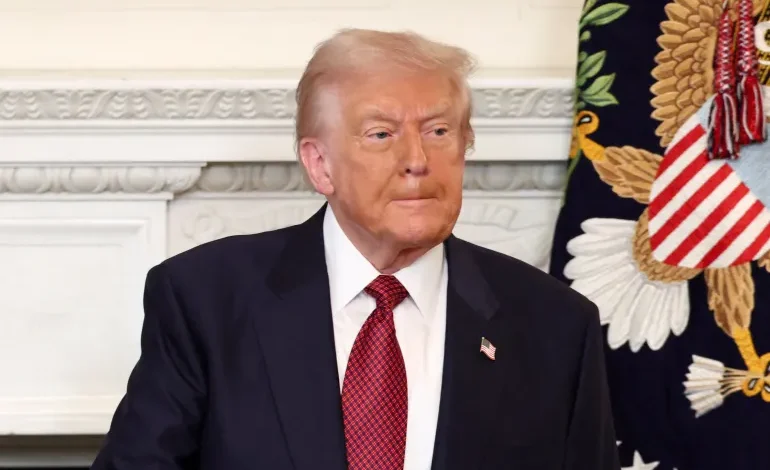
The lawyer representing United States President Donald Trump’s administration is facing tough questions from conservative and liberal US Supreme Court justices over the legality of the Republican president’s sweeping tariffs in a case with implications for the global economy that marks a major test of Trump’s powers.
On Wednesday, the justices pressed US Solicitor General D John Sauer, arguing for the administration, about whether Trump had intruded on the power of Congress in imposing tariffs under a 1977 law meant for national emergencies. They also asked Sauer whether Trump’s application of the statute to impose tariffs of unlimited duration was a major action by the executive branch that would require clear congressional authorisation.
Trump invoked the International Emergency Economic Powers Act, or IEEPA, to impose the tariffs on nearly every US trading partner. The law allows a president to regulate commerce in a national emergency.
Imposing taxes ‘core power of Congress’
Sauer said Trump determined that US trade deficits have brought the nation to the brink of an economic and national security catastrophe. Sauer said imposition of the tariffs has helped Trump negotiate trade deals, and unwinding those agreements “would expose us to ruthless trade retaliation by far more aggressive countries and drive America from strength to failure with ruinous economic and national security consequences”.
The US Constitution grants Congress, not the president, the authority to issue taxes and tariffs. The administration has argued that IEEPA allows tariffs by authorising the president to “regulate” imports to address emergencies.
The imposition of taxes on Americans “has always been the core power of Congress”, conservative Chief Justice John Roberts told Sauer, adding that these tariffs seem to be raising revenue, which the Constitution considers a role for Congress.
Conservative Justice Amy Coney Barrett questioned Sauer about his argument that IEEPA’s language granting presidents emergency power to “regulate importation” encompasses tariffs.
“Can you point to any other place in the code or any other time in history where that phrase together ‘regulate importation’ has been used to confer tariff-imposing authority?” Barrett asked.
US Treasury Secretary Scott Bessent said in the lead-up to the arguments that if the Supreme Court rules against Trump’s use of IEEPA, his tariffs are expected to remain in place because the administration would switch to other legal authorities to underpin them. Trump has imposed some additional tariffs, invoking other laws. Those are not at issue in this case.
Major questions doctrine
Sauer said the president’s actions in imposing the tariffs did not violate the Supreme Court’s “major questions” doctrine, which requires executive branch actions of vast economic and political significance to be clearly authorised by Congress. The Supreme Court applied this doctrine to strike down key policies of Trump’s Democratic predecessor Joe Biden.
A lower court, in ruling against Trump, found that the tariffs were impermissible under this doctrine.
Some of the justices, in questioning Sauer on whether Trump’s tariffs would survive scrutiny under the “major questions doctrine”, noted that Congress did not include the word tariffs in IEEPA.The lawyer representing United States President Donald Trump’s administration is facing tough questions from conservative and liberal US Supreme Court justices over the legality of the Republican president’s sweeping tariffs in a case with implications for the global economy that marks a major test of Trump’s powers.
On Wednesday, the justices pressed US Solicitor General D John Sauer, arguing for the administration, about whether Trump had intruded on the power of Congress in imposing tariffs under a 1977 law meant for national emergencies. They also asked Sauer whether Trump’s application of the statute to impose tariffs of unlimited duration was a major action by the executive branch that would require clear congressional authorisation.
The arguments come in appeals pursued by the administration after lower courts ruled that his unprecedented use of a 1977 federal law at issue to impose the tariffs exceeded his authority. Businesses affected by the tariffs and 12 US states, most of them Democratic-led, challenged the tariffs.
Trump has heaped pressure on the Supreme Court, which has a 6-3 conservative majority, to preserve tariffs that he has leveraged as a key economic and foreign policy tool. The tariffs – taxes on imported goods – could add up to trillions of dollars for the US over the next decade.
Sauer kicked off the arguments by defending the legal rationale employed by the president, but immediately faced questions raising scepticism about the administration’s arguments about the language and purpose of the statute at issue.
